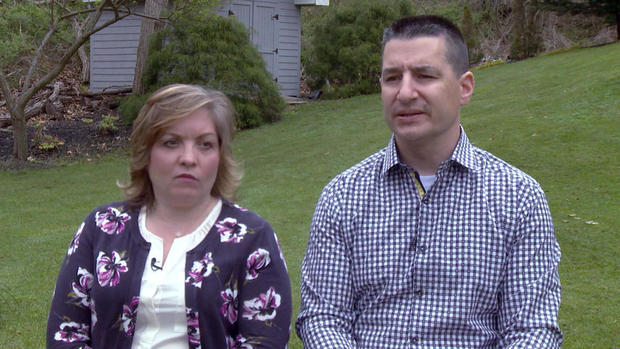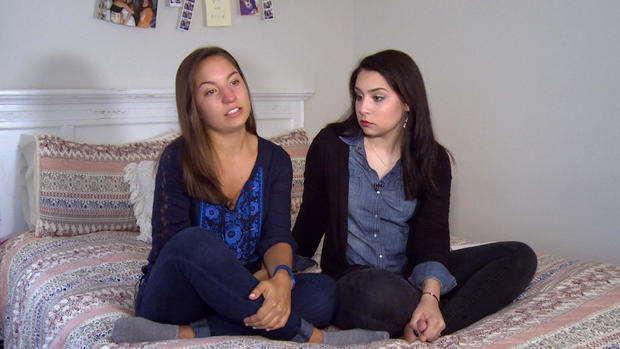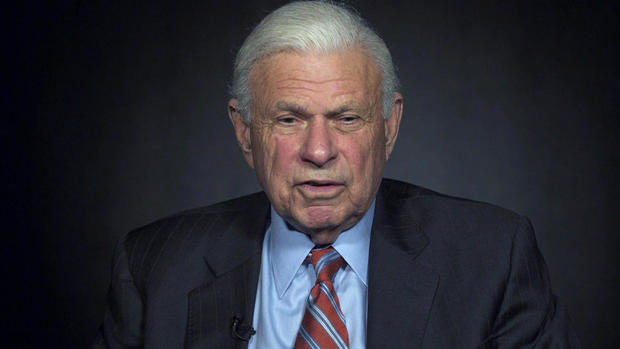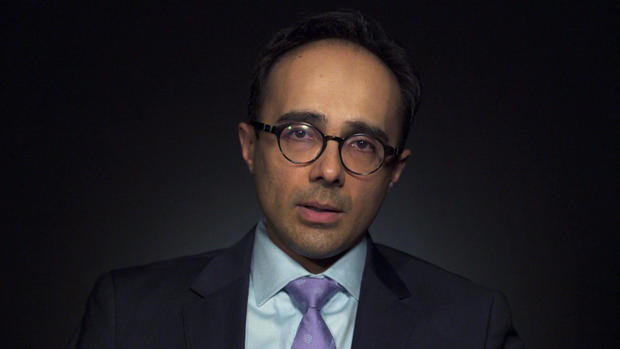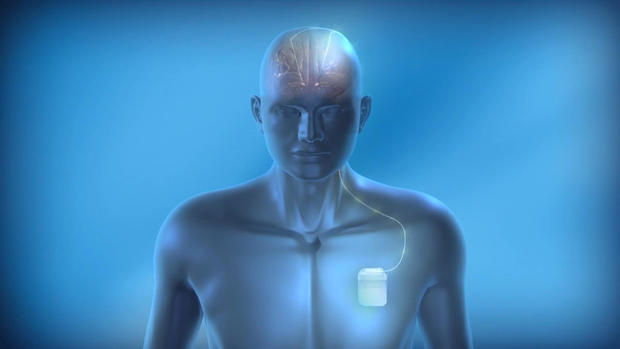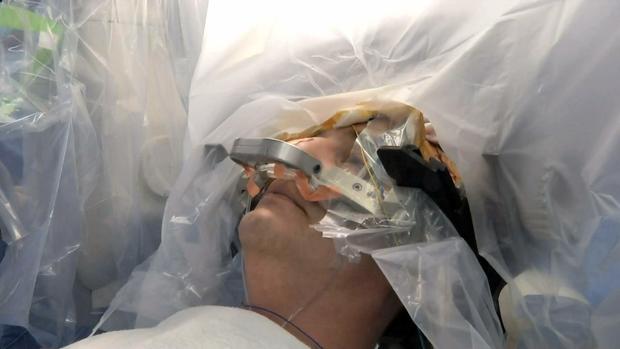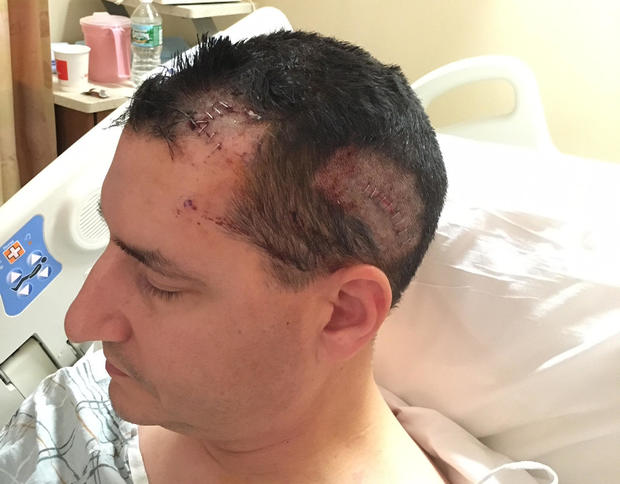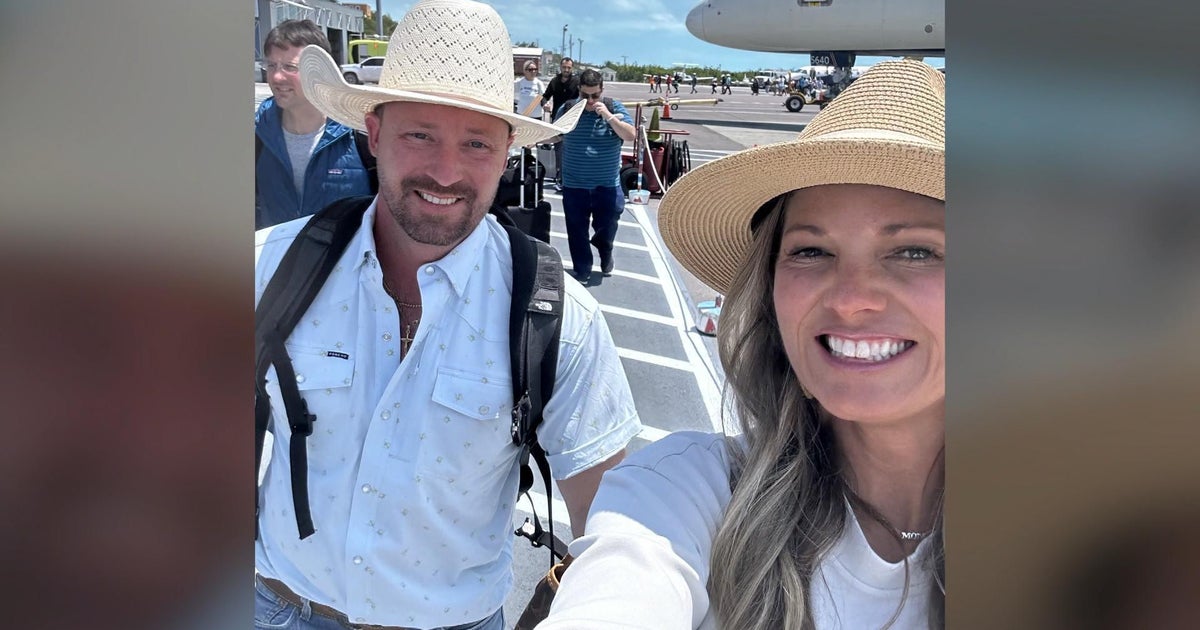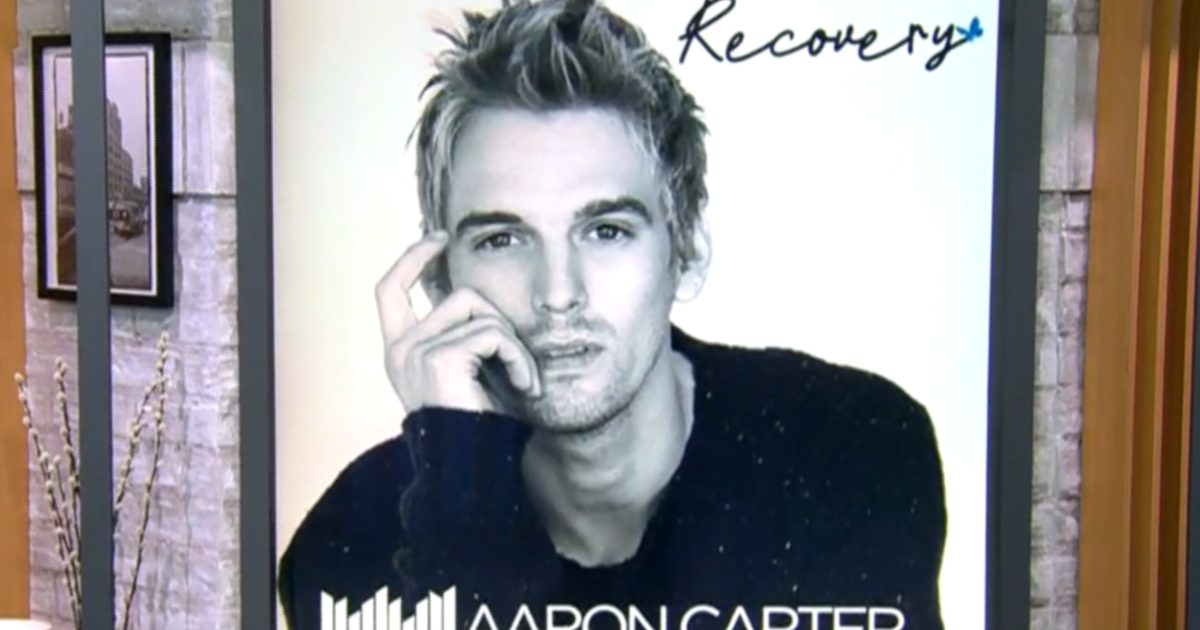State of Mind Episode 5: Out of the depths
"CBS Evening News Uncharted: State of Mind" is a five-part digital series that started airing in May, with new episodes released every Wednesday. The series examines the state of mental health care in America in conjunction with Mental Health Awareness Month. More than 43 million Americans suffer from mental illness.
- State of Mind Episode 1: Where we are as a nation
- State of Mind Episode 2: Hidden battles
- State of Mind Episode 3: To suffer in silence
- State of Mind Episode 4: Training to deal with mental illness
Vito Randazzo's battle with severe depression started 18 years ago when his youngest daughter, Emily, was born. The unexpected illness left him so crippled that he had to stop going to work.
"You feel like you're going crazy and you constantly feel like you want to kill yourself because there is no way out," he said. "Every single day was a push just to survive."
Emily and her 20-year-old sister, Sarah, had to grow up faster than most kids in order to help their father cope with his depression and suicidal thoughts.
"There are times where you think, 'what if I grew up without a dad or not even grew up, what if I have to continue without my father,'" Emily said, in tears. "It is just not something any child wants to hear or think about at all."
"The word suicide hits you in the face, it hits you like a truck whenever you hear it," said Sarah.
According to the American Foundation for Suicide Prevention, 25 million Americans suffer from depression each year. More than 50 percent of all people who die by suicide suffer from major depression.
"This disease was wearing him down to the point where he wanted to give up," said Kathy Randazzo, Vito's wife. "When you have no hope, nowhere else to go, no treatments, medications, nothing, what do you do?"
Dr. Robert Levine has been Vito's psychiatrist for 15 years.
"He is one of my most difficult patients because he responded to so little," Levine said.
"I must have tried over a hundred different medications and a hundred different combinations of medications which weren't working at all," Vito said.
Some of the antidepressants that Vito took caused paranoia and hallucinations.
"I thought someone was always out to get me," Vito said. "In one instance, I thought someone was in the home. I saw someone walk down my hallway."
"He would have to go room by room to make sure no one was behind the doors and then go downstairs to the basement and make sure everything was locked," Kathy said. "Then he would have to do it all over again just in order to convince himself that nobody is watching."
Insomnia was a symptom of Vito's depression; He would go months with virtually no sleep.
To alleviate the sleeplessness, Vito underwent 60 rounds of electroconvulsive therapy. Small electric currents were passed through his brain to intentionally trigger brief seizures, but it did not help for long.
"I felt pretty much the same way he did, dispirited," Levine said. "As a physician you shouldn't but you always, it is always a tendency to blame yourself, to think that if only you had tried something else he would have responded."
As a last resort, Dr. Sameer Sheth and his neurosurgery team at Columbia University Medical Center and New York-Presbyterian Hospital suggested the use of deep brain stimulation, or DBS, to treat Vito's depression.
"We actually stimulate the brain usually using electrical energy and the reason that is done is because the brain is a bunch of neuron and nerve cells that communicate using electrical rhythms," Sheth said. "When those electrical rhythms and that communication is not working properly you see disorders."
DBS is not approved by the Food and Drug Administration as a treatment for depression. In Vito's case, Sheth received approval as an off-label clinical case for compassionate use.
"Some people think that it is excessive that I am going to get brain surgery for a disease," Vito said. "But at that point I had no other option … I didn't have a life at that point."
This surgical procedure, most commonly used to treat tremors, involves the placement of an electrode on each side of the patient's brain. The spot is specifically targeted based on their symptoms and MRI scans. The thin, insulated wires connect to a battery pack that delivers electrical stimulation and sits under the skin in the upper chest, similar to a heart pacemaker.
Vito was awake for part of the procedure.
"Being on an operating table and the room becomes brighter, colors [more] vivid," Vito said. "Your chest feels lighter, like somebody's not sitting on your chest anymore. [The] headache that you've had for 18 years finally subsides."
"It's not a guarantee, we are getting better and better but there is still room for improvement," Sheth said. "Most importantly, this is not something that you do and then you're done. Vito for example, continues to work very hard through the depression that is still there."
DBS is not a permanent procedure. It can be removed at any point without damage or change to the brain.
"About seven months in is when we started to notice very subtle things that he didn't even recognize yet," Kathy said. "It might be that when I got home from work I would hear him in the kitchen and he would be singing, which as silly as it sounds, it is something he hasn't done in a long time. As time went on, you would see him interacting more with the girls and just overall just see that a weight was lifted off of him."
"It's very dangerous to generalize from one case, but the results for Vito are so spectacular that you have to believe that there really has been a quantum leap in the treatment for severe depression," Levine said.
"It has been life changing, it really has," Vito said. "What I'm looking forward to the most are just the simple things in life… I am not looking for grandeur. I'm just looking to live my life. I lost 18 years and now I'm living life again."
